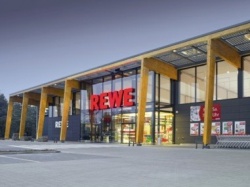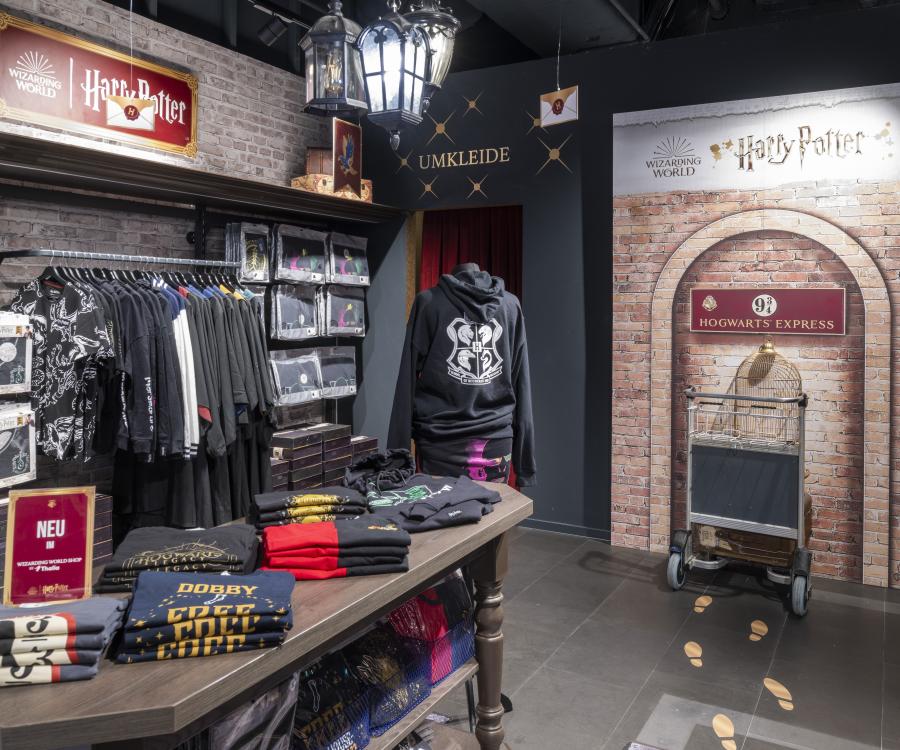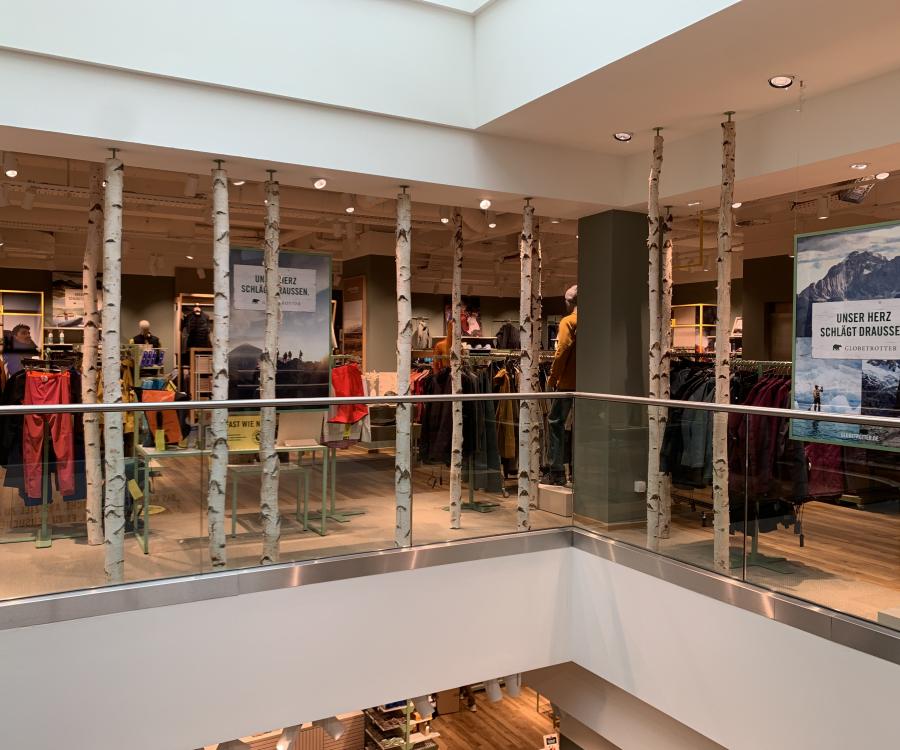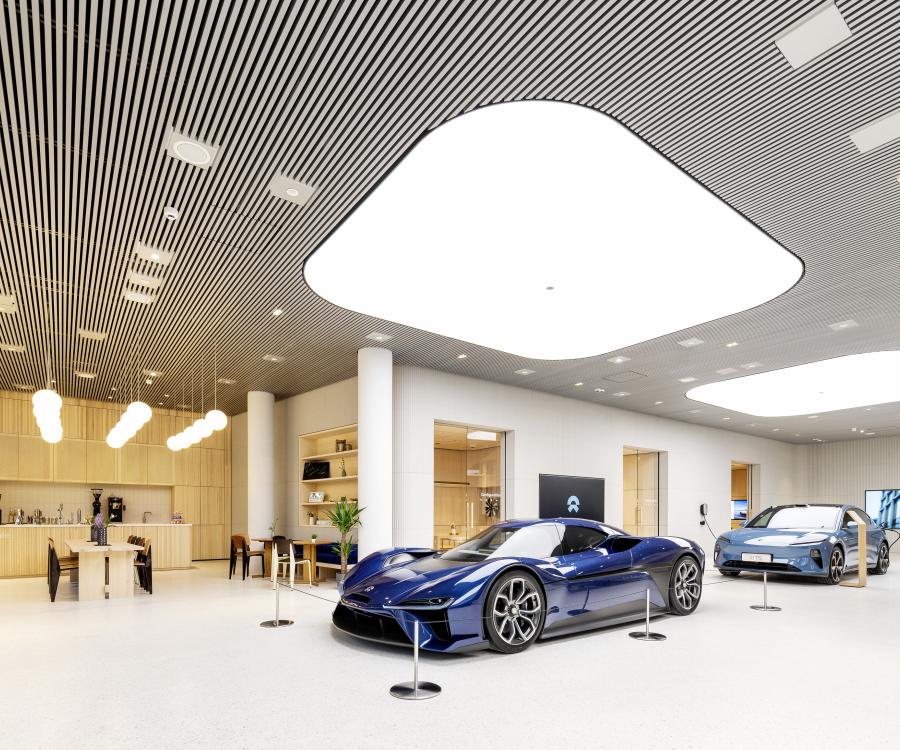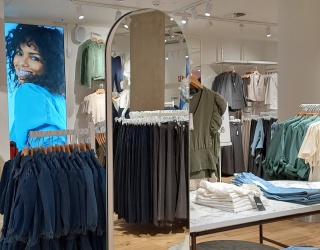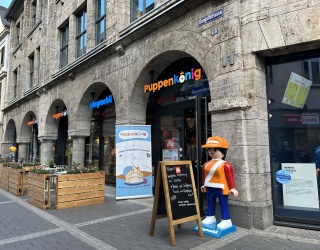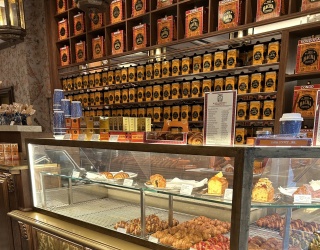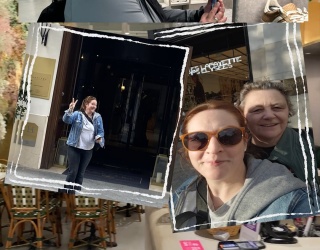By now, green products are not only available in small health food shops, but also at discount supermarket chains. Going green is a trendy subject in the food trade. This is also evident in the way stores are being built. Guests are supposed to feel like they are visiting a farmer’s market with all its fresh produce. The building is also meant to be green. Conserving energy and natural construction materials gain importance.
Supermarkets are huge consumers of energy. The use in percentage for refrigeration units and freezers ranges around 40 to 60 percent. Energy – this translates into costs, but also into impact on the environment. Consumers increasingly pay attention to green criteria. The retail association in Germany (HDE) has also noticed this trend and in February awarded the CO2-neutral supermarket from Rewe in Berlin in its food category as ”Shop of the year 2010.“
With its 1,800 square meters, the Rewe store was opened in November 2009. Compared to a regular building, it consumes almost 50 percent less energy. This “Green Building“ according to Rewe, comes with a natural light design, that’s combined with energy saving building techniques, the best insulation, sustainable materials and the use of regenerative energy sources.
Edeka-merchants are walking down similar paths. On March 24 the Edeka Aktiv-Market in Untergrombach near Bruchsal (Germany) was opened. For his store and its 1,437 square meters of sales floor, proprietor Christoph Dörner placed great importance on climate friendly planning. An innovative geothermal facility is in charge of air conditioning. Through a heat pump, the waste heat that’s produced during the production process of the freezers and dairy cases, is used to heat the store during the winter. During the summer months, the geothermal facility air conditions the store and ensures comfortable temperatures. Simultaneously, it supports the cooling system by cooling down the waste heat from the production process. This improves the refrigeration capacity of the facility and reduces energy consumption.
The CO2-complete cooling system is energy efficient, because it exhibits less electricity consumption compared to conventional facilities. Furthermore, it is emission-free, because the eco-friendly CO2 is being utilized. The cooling facility is equipped with state-of-the-art control system technology, while the freezer units with their sliding class covers also conserve energy.
Store atmosphere and organic produce
Today customers are more spontaneous than in the past and many come to the store without a shopping list. Retailers want to positively influence consumers in their purchasing decisions through a harmonious store design. Ixtenso reports especially in the produce section, retailers are moving away from a big sales area in favor of gently curved and inviting forms. With tables, crates and wicker baskets, the trend goes toward genuine and authentic presentation. While in the past mirrors above produce created the appearance of merchandise density, today super markets focus on real volume. It looks like a farmer’s market.
The Dutch trend scout Li Edelkoort discovers in her book “The Bible of Well Being“ early signs that people will increasingly focus on a desire for sensual well-being in all areas of life. Consumers particularly seek closeness, intimacy and regional characteristics. Health food super markets already use this trend to their advantage.
Right in the heart of Munich’s historic center, Daylesford Organic opened its first German store on November 19, 2009 – with 180 square meters in a building dated back to 1278, the second oldest of the regional capital city. The store focuses on a natural and simple ambiance. Antique furniture and organic, original materials should convey the comfortable atmosphere of a rural farm shop.
The company was founded more than 20 years ago by an organic farmer from the British region of Staffordshire. The fresh produce of the new store in Munich comes directly from the surrounding areas. The store cooperates with the organic bakery Glonntaler Backkultur

